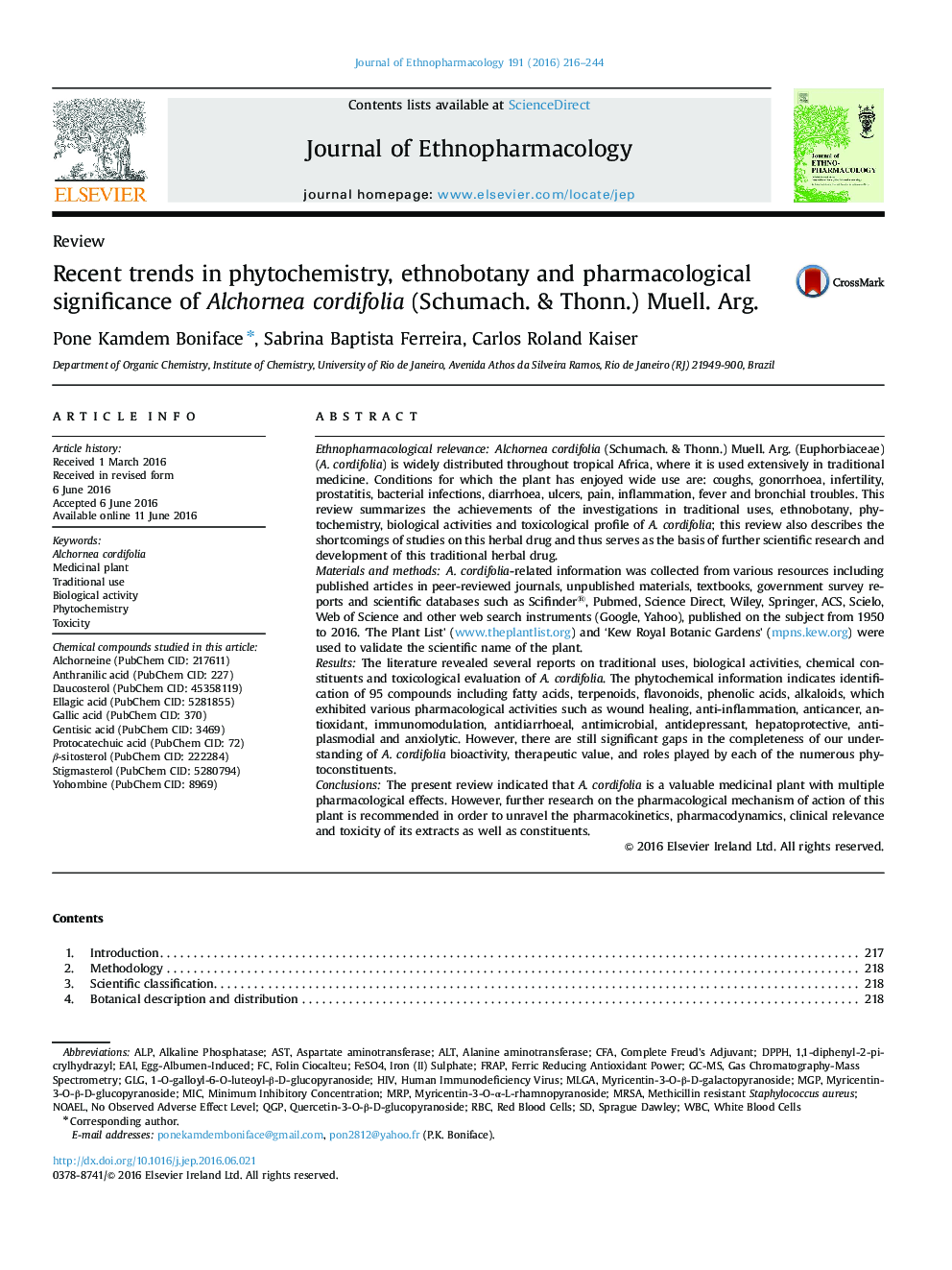| Article ID | Journal | Published Year | Pages | File Type |
|---|---|---|---|---|
| 2544568 | Journal of Ethnopharmacology | 2016 | 29 Pages |
Ethnopharmacological relevanceAlchornea cordifolia (Schumach. & Thonn.) Muell. Arg. (Euphorbiaceae) (A. cordifolia) is widely distributed throughout tropical Africa, where it is used extensively in traditional medicine. Conditions for which the plant has enjoyed wide use are: coughs, gonorrhoea, infertility, prostatitis, bacterial infections, diarrhoea, ulcers, pain, inflammation, fever and bronchial troubles. This review summarizes the achievements of the investigations in traditional uses, ethnobotany, phytochemistry, biological activities and toxicological profile of A. cordifolia; this review also describes the shortcomings of studies on this herbal drug and thus serves as the basis of further scientific research and development of this traditional herbal drug.Materials and methodsA. cordifolia-related information was collected from various resources including published articles in peer-reviewed journals, unpublished materials, textbooks, government survey reports and scientific databases such as Scifinder®, Pubmed, Science Direct, Wiley, Springer, ACS, Scielo, Web of Science and other web search instruments (Google, Yahoo), published on the subject from 1950 to 2016. ‘The Plant List’ (www.theplantlist.org) and ‘Kew Royal Botanic Gardens’ (mpns.kew.org) were used to validate the scientific name of the plant.ResultsThe literature revealed several reports on traditional uses, biological activities, chemical constituents and toxicological evaluation of A. cordifolia. The phytochemical information indicates identification of 95 compounds including fatty acids, terpenoids, flavonoids, phenolic acids, alkaloids, which exhibited various pharmacological activities such as wound healing, anti-inflammation, anticancer, antioxidant, immunomodulation, antidiarrhoeal, antimicrobial, antidepressant, hepatoprotective, antiplasmodial and anxiolytic. However, there are still significant gaps in the completeness of our understanding of A. cordifolia bioactivity, therapeutic value, and roles played by each of the numerous phytoconstituents.ConclusionsThe present review indicated that A. cordifolia is a valuable medicinal plant with multiple pharmacological effects. However, further research on the pharmacological mechanism of action of this plant is recommended in order to unravel the pharmacokinetics, pharmacodynamics, clinical relevance and toxicity of its extracts as well as constituents.
Graphical abstractFigure optionsDownload full-size imageDownload high-quality image (265 K)Download as PowerPoint slide
